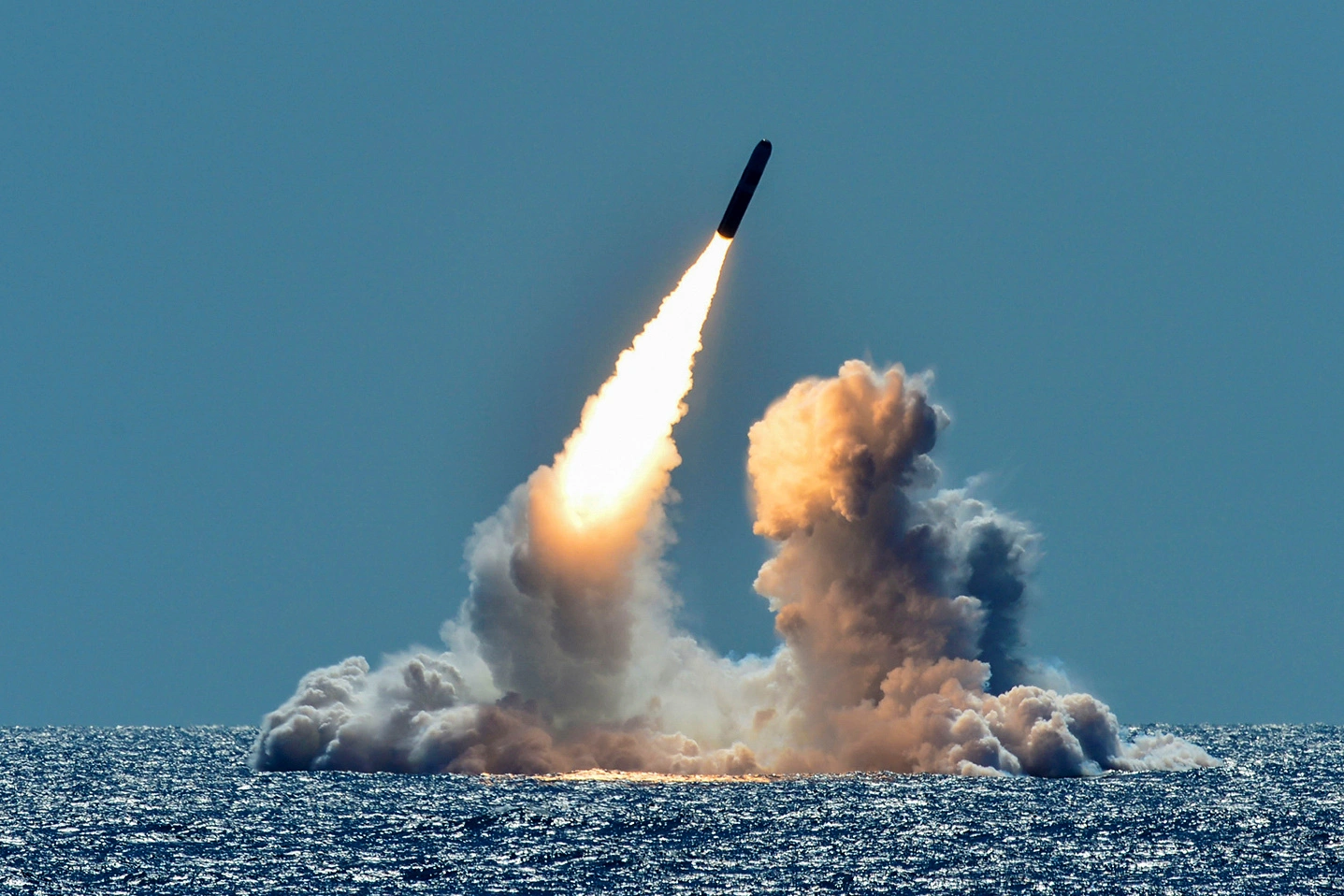For quite some time, the future of nuclear defense has been the subject of significant debate among international relations scholars, policymakers, and military strategists. The question is whether the future of nuclear defense is more to be dictated by deterrence or diplomacy as the world continues to come to terms with the realities of nuclear weapons. It should be possible to provide an answer to this if both approaches can be well analyzed in terms of their pros and cons, along with technology development, international treaties, and changing geopolitical dynamics.
The theory of deterrence is what gives meaning to a nuclear-armed state having a whole discussion on its defense. The very nature of nuclear weapons with their capabilities for destruction is said to have posed an impediment to other states attacking or threatening to attack a state. During the Cold War, when both the U.S. and the Soviet Union were in possession of vast nuclear arsenals, the deterrence theory seemed to occupy center stage, and the prospect of actually confronting each other became almost unthinkable to all concerned.
The pattern of deterrence operates on the principle of Mutual Assured Destruction (MAD), which means that on the one hand, if one state would ever launch a nuclear strike, the other would retaliate with at least the same amount, or even more, and that would lead to the destruction of both.
The logic of deterrence has remained valid and acceptable for decades. The concept of deterrence has prevented nuclear weapons states from going to war with each other, given principally the rival powers-the U.S. and Russia. In the modern-day world, deterrence continues to sit at the center of national security thinking, even beyond the Cold War.
The contemporary world is, however, questioning the utility of nuclear deterrence for many reasons. First, there are variables at play in the global political landscape that have changed. North Korea and Pakistan have emerged as new nuclear states, while the old nuclear superpowers now face nonstate actors-terrorist organizations that do not share the same rational calculations with respect to retaliation. Moreover, newer challenges are arising from the growth of cyberwarfare capabilities. Cyberattacks might cripple early warning systems, thus leading to catastrophic miscalculations.
Read More: Is Nuclear Deterrence Still a Reliable Security Strategy in the 21st Century?
Some theorists even argue that nuclear deterrence may be an illusion. Simply relying on the threat of massive retaliation does not address the real security concerns; on the contrary, it fuels an arms race that further increases global tensions. Nuclear disarmament advocates argue that deterrence promotes an explosive cycle in which nations are compelled to amass ever-growing arsenals, each one trying to hold on to a perceived “edge” over the other. According to them, the future of nuclear defense is seen to rely on dialogue, cooperation, and ultimately, total disarmament.
While deterrence is about using force to prevent aggression, diplomacy is about preventing conflict through the use of peaceful dialogues, negotiations, and treaties. Diplomacy has for long been a cardinal element in international relations and remains crucial for the efficient handling of nuclear risks. In the course of the nuclear age, diplomacy comes to have a cardinal effect on the future of nuclear defense.
The role of diplomacy in nuclear defense can be justified starting from major treaties that have had a global impact, such as the Treaty on the Non-Proliferation of Nuclear Weapons (NPT) and the Comprehensive Nuclear-Test-Ban Treaty (CTBT). These treaties effectively caused a slowdown in the spread of nuclear weapons and acted as an encouragement for disarmament.
The NPT coming to force in 1970 intends to prevent nuclear weapon proliferation by promoting the peaceful use of nuclear energy, combined with initiatives that address the issue of disarmament as it expects the existing nuclear-weapon powers to negotiate gradual disarmament measures.
The New START treaty between the U.S. and Russia also goes to serve as an example of diplomatic activities to limit nuclear weapons. The New START trigger was pulled in 2010, being extended in 2021. The agreement severely restricts the amount of deployed strategic nuclear warheads and delivery vehicles that may be possessed by each nation-state, thereby guaranteeing greater transparency and predictability of nuclear arsenals. While there have been some setbacks, such as the U.S.’s withdrawal from the Intermediate-Range Nuclear Forces (INF) Treaty in 2019, overall momentum of increased international cooperation leaves hope.
Nuclear defense would highly likely involve much more diplomacy in future. It has become apparent to all countries that there is no good way to get around the huge humanitarian effects of nuclear conflict, which could engulf the entire planet in uninhabitability. As the technology proliferates into more countries, then to diplomatic measures it becomes more urging in dealing with the risk from new emerging nuclear states.
Read More: Dawn of the Third & Dusk of the Second Nuclear Age: Is South Asia’s Deterrence Ready to Roll?
This avenue of diplomacy can be achieved through nuclear-weapon-free zones (NWFZs), which is an arrangement in which certain places in the world announce that they will not possess or develop nuclear weapons. There is no doubt that in the future, multilateral dialogue will have to be invited into the picture and will be inextricably linked to the building of mutual trust through the diminishing dependence on nuclear weapons.
The faster improvements in technology, and in most cases cyber warfare and missile defense, both influenced deterrence and diplomacy. Indeed, new technologies are promising particular trouble to projections of nuclear defense under the traditional frameworks, redefining strategies of both deterrence and diplomacy.
For example, attacks in the cyber domain could undermine the credibility of nuclear deterrence. In a future where early-warning systems, communication nets, and missile defense systems are entirely digital, cyberattacks might disrupt or confuse military officials and cause unintended nuclear escalation. As risks increase with cyber warfare, we must then ask ourselves how to trust the confidence of our faith in the efficacy of deterrence when an enemy can attack ours from the digital realm of vulnerabilities.
Missile defense systems equally represent an important technological fundamental change of nuclear defense. The missile defense systems, for example, the U.S. Ground-based Midcourse Defense (GMD) system, are designed to intercept and destroy incoming missiles, but efficiency is still debated. Should missile defense technology prove reliable, it could weaken the power of nuclear deterrence. Countries might start feeling less vulnerable to nuclear threats, thus creating conditions for a new arms race in missile defense and countermeasures.
In contrast, artificial intelligence (AI) and machine learning could radically alter the course of nuclear diplomacy in the future. AI would facilitate the management of intricate arms control agreements, identify potential security threats, and allow for improved decision-making under crisis situations. On the dark side, it is feared that, should AI be used to control or automate nuclear weapons, this would greatly raise concerns regarding accidental escalation and the absence of human judgment in matters of life and death.
A Hybrid Approach: Combining Deterrence and Diplomacy
Under different contexts, deterrence will not remain the only strategy for nuclear defense; a combination of its features with those of diplomacy may also define considerations for nuclear defense. Deterrence has implications for the preservation of national security; it is understood as ensuring retaliation against an adversary when that adversary engages in unlawful acts. Diplomacy serves as an avenue by which tensions are lowered, confidence is generated, and disarmament becomes a goal.
An example of this hybrid structure is the idea of strategic stability, in which states interact in such a way that none will initiate a nuclear attack, knowing this would incur disastrous consequences. This strategic stability exists not only because deterrence works but also because of the ideas that the diplomatic community holds regarding arms control, transparency, and crisis management.
Will the nuclear defense directed toward the future prosper with states in the delicate balance of the two imperatives of maintaining a credible deterrent while pursuing diplomatic efforts to diminish nuclear risks? The answer lies in strengthening multilateral frameworks aimed at fostering cooperation, establishing norms against the use of nuclear weapons, and promoting disarmament.
Nuclear defense trends in the future will most likely be shaped by deterrence and diplomacy, which both approaches would complement one another in sustaining international security. The deterrent doctrine for the past several decades has kept major wars at bay among nuclear-armed states. However, with changes in the political landscape globally and the relatively rapid advancement of technology, much greater stress ought to be laid on diplomatic engagements.
The continuing relevance of nuclear weapons into issues of global security means that countries have to work on strategic deterrence and multilateral diplomacy in addressing the inextricably complex threats posed by these weapons. Therefore, the way forward will be a delicate balance of military preparation and international cooperation to prevent the grave ramifications of nuclear warfare.
*The views expressed in this article are the author’s own and do not necessarily reflect the editorial policy of TDI.

Nabeel Shah
Nabeel Shah is a research intern at the Centre for Pakistan and Gulf Studies, Islamabad, with a strong interest in policy commentary. He can be reached at shahnabeel468@gmail.com



